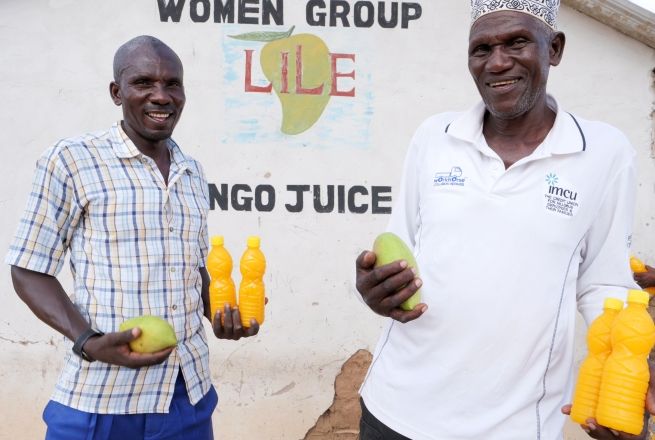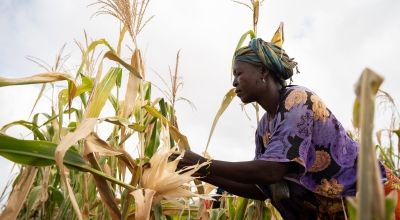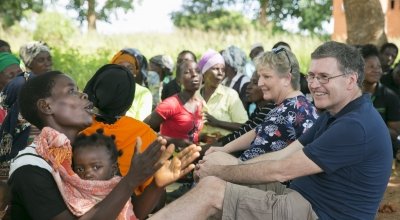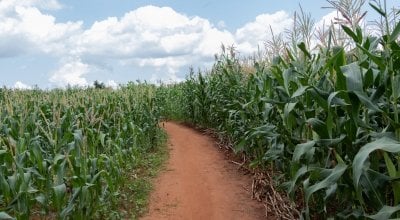
Read our 2023 annual report

Knowledge Hub
Global food and nutrition company Kerry Group has extended its partnership with Concern Worldwide through a four-year project to improve food security, nutrition and farm productivity in Kenya.
Continued partnership
Building on the success of the previous Kerry Group-funded RAIN (Realigning Agriculture to Improve Nutrition) projects in Zambia and Niger, Kerry Group has generously committed to extending its partnership with Concern through ALIVE, a four-year project to improve food security and nutrition in Kenya.
By removing barriers to progress, we aim to improve the lives of local farmers and their families. The focus on climate-smart solutions and health and nutrition support will create long-term value and support some of those most affected by hunger and malnutrition... We are extremely proud to partner with Concern once again to devise innovative solutions to help make Zero Hunger a reality.
ALIVE programme in Kenya
Kerry Group’s four-year programme in Kenya will transform agricultural livelihoods by providing smallholder farmers with access to predictable markets, affordable finance, quality farming inputs and effective, climate smart technologies across three sub-counties of Tana River, Tana Delta, and Tana North. This aligns with Kerry Group’s active commitment to the creation of solutions which are better for people, society and the planet.
This partnership is delivered through a shared value approach – incorporating important factors such as skills training, access to capital, markets, and employment for smallholder farming communities to thrive as well as improving nutrition and health levels that have been at the core of Concern and Kerry Group partnerships to date.
Poverty remains a major challenge in this region, with an estimated 62% of the population living below the poverty line. Kenya ranks 94th out of 121 countries in the 2022 Global Hunger Index.
Farmers in Kenya are particularly vulnerable to climate change. Pastoralism has been the main economic activity for households in the area, however, climate change has led to pasture deterioration and water scarcity, threatening household income and food security, and placing many farmers’ livelihoods at risk.
Improving food security
The ALIVE programme seeks to capitalise on the resource of the Tana River, with a strong focus on building mango production for consumption and sale. It will also address current barriers such as inadequate production methods, lack of organisation amongst farmers, and poor management of natural resources, to enable farmers to build more sustainable livelihoods, and to improve the food and nutritional security of their local communities.
The programme is supporting the expansion of crop varieties under production and increased access to climate smart agriculture training and inputs. A seed subsidy has given farmers a variety of high-quality drought tolerant seeds, to enable them to become increasingly resilient to climate-induced shocks, which is already beginning to increase output and enable better nutritional food access for participating households.
In its first year, the programme has:
-
Distributed 18,956 kilograms of climate resilient seeds, and 44,900 early maturing mango seedlings
-
Trained 3,513 farmers in climate resilience, agronomics and pest management, which is improving crop yields and livelihoods
-
Opened up 506 new acres for agricultural production
-
Produced 456,179.50 kilograms of diversified food crops
Preventing malnutrition
The ALIVE programme is also making improvements in the malnutrition levels of children aged under five and pregnant and breastfeeding women across the three counties. In the first year alone, it has achieved a reduction in acute malnutrition levels of children under five, from 14.3% to 13.8%.
These improvements have been further strengthened by the training of 21 community health assistants and 210 community health volunteers to improve and maintain health across the area, as well as activities to build the awareness of 22,673 mothers on nutrition education, malnutrition screening and self-referral.
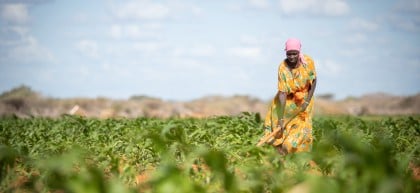
Our impact in 2023
people reached through our emergency response
people reached through our health interventions
people reached through our livelihoods programmes


